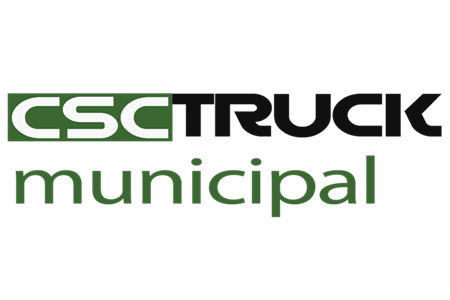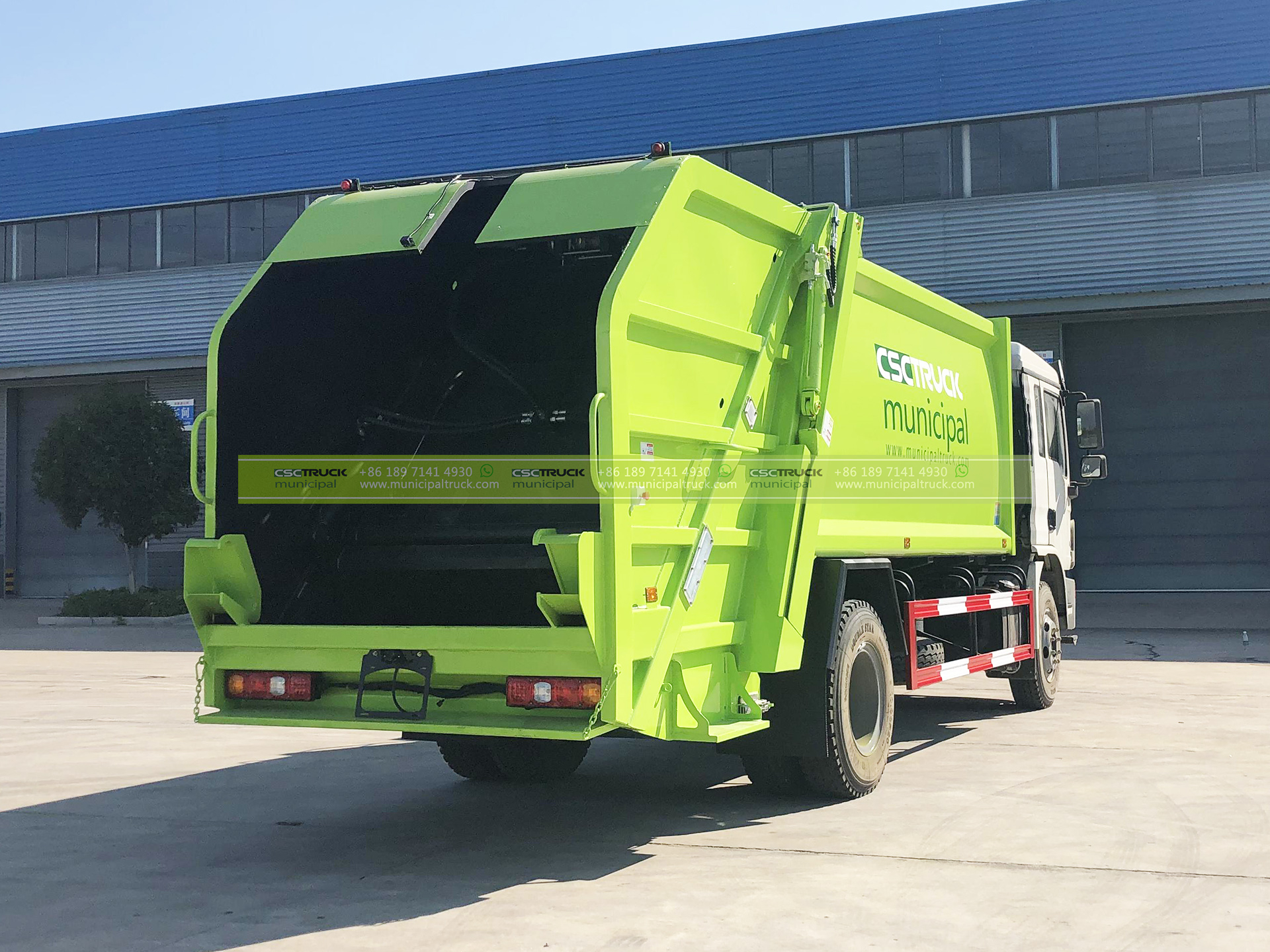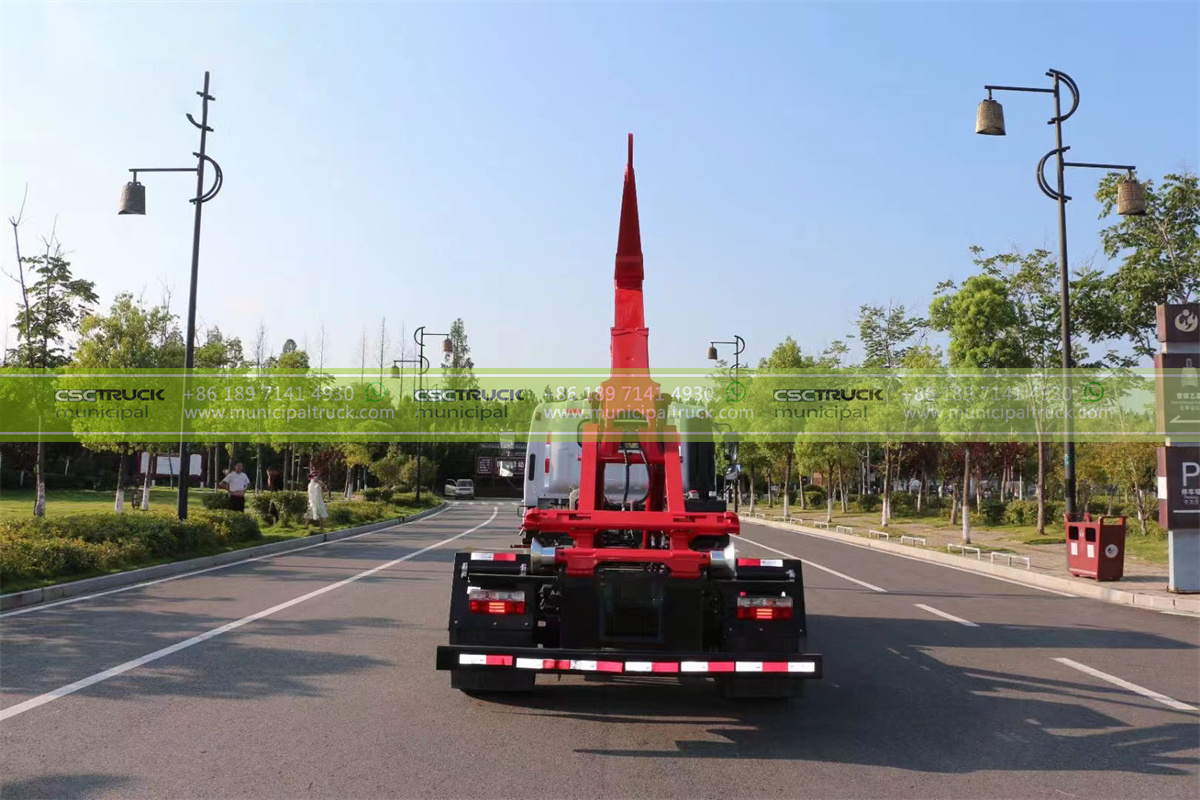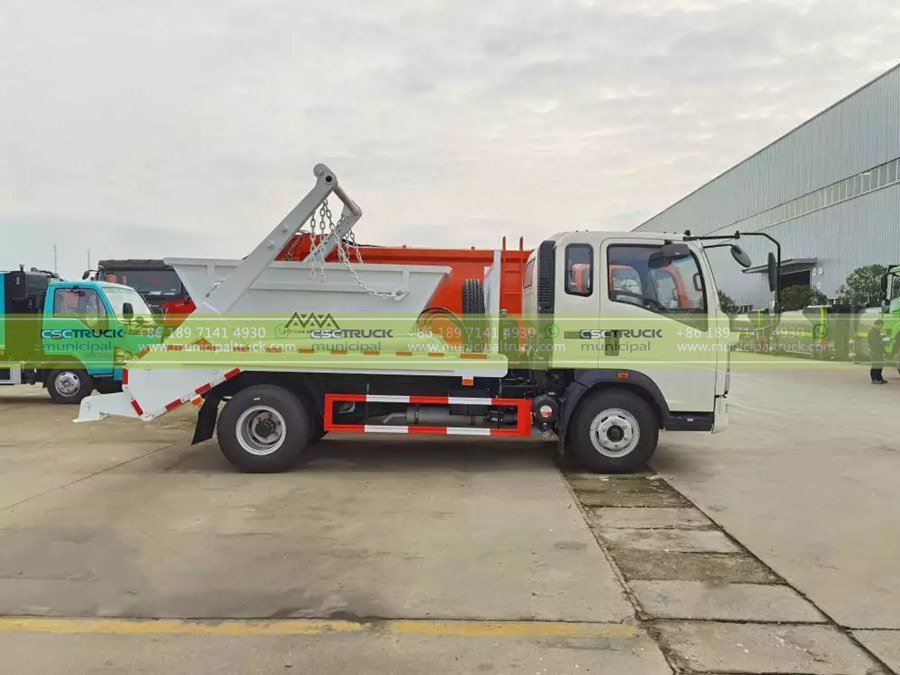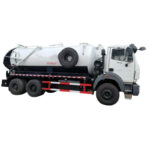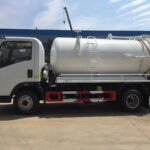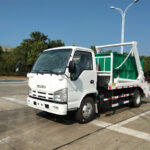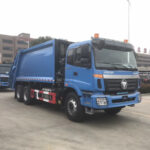Waste management plays a crucial role in maintaining the cleanliness and health of urban and rural communities. The backbone of effective waste management systems are the garbage trucks, designed specifically for the efficient collection, transportation, and disposal of waste. Garbage trucks come in a variety of forms, each designed to handle different waste types, volumes, and collection processes. In this quick guide, we will explore the various types of garbage trucks, highlighting their features, uses, and benefits. Whether you are involved in waste management or simply curious about how waste is collected, understanding the different types of garbage trucks can give you a better insight into this essential service.
1. The Garbage Truck: An Overview
Before diving into the specifics of different types of garbage trucks, it’s important to first understand what defines a garbage truck. At its core, a garbage truck is a vehicle designed for the collection, transportation, and disposal of waste. Depending on the size, design, and loading mechanism, these trucks vary widely in their applications.
The traditional garbage truck uses a mechanical system to collect waste, and it can come in several configurations, each suited to specific waste collection needs. These trucks are a familiar sight in both residential and commercial areas, ensuring that trash is regularly removed to maintain cleanliness and sanitation. Whether you’re dealing with household refuse, recyclables, or industrial waste, the garbage truck is the workhorse of waste collection.
Key Features of a Garbage Truck
Most garbage trucks share a few common features: large capacity bins, hydraulic lifting mechanisms for loading and unloading, and durable designs capable of carrying heavy loads. They are built to handle a wide range of waste types, from everyday household trash to specialized waste like construction debris. The efficiency of a garbage truck largely depends on its specific design, which can be customized for various tasks.
2. Compactor Garbage Truck: Maximizing Efficiency
The compactor garbage truck is a specialized vehicle designed for compacting waste as it is collected, thereby increasing its load capacity and reducing the number of trips required to transport waste. This type of truck is particularly useful for residential and commercial waste collection where frequent pickups are required, and space is limited.
How Compactor Trucks Work
As waste is collected, it is pushed into a compacting chamber where the trash is compressed by a powerful compaction mechanism. This compaction process allows more waste to be carried per load, making the truck highly efficient in high-volume areas such as apartment complexes, shopping centers, and urban environments. By compacting the waste, compactor trucks help to reduce landfill space and promote more efficient waste disposal practices.
Benefits of Compactor Garbage Trucks
The main advantage of a compactor garbage truck is its ability to handle large volumes of waste, making it ideal for locations with heavy trash production. It also minimizes odors and waste spillage during transport, which makes it a more hygienic option for waste management.
3. Hook Loader Garbage Truck: Versatile and Durable
The hook loader garbage truck is a robust and versatile vehicle designed to pick up, transport, and unload large waste containers known as containers or skips. This truck uses a hydraulic hook system to lift and load the container onto the truck, making it easy to handle bulk waste without the need for additional lifting equipment.
Key Features and Uses of Hook Loader Trucks
Hook loader garbage trucks are widely used in industries that generate large amounts of waste, such as construction, demolition, and heavy manufacturing. These trucks are particularly useful for handling industrial waste, scrap materials, and construction debris. They can load and unload skips at various angles, giving them a high degree of flexibility, which is ideal for sites with challenging access points.
The hook loader’s design allows for fast waste collection and efficient transportation, making it ideal for large-scale waste management operations. These trucks are also popular for their durability, being capable of withstanding heavy loads and rough conditions.
4. Skip Loader Garbage Truck: A Flexible Waste Management Solution
Another highly efficient and flexible truck in the waste management arsenal is the skip loader garbage truck. Like the hook loader, the skip loader is equipped with a hydraulic arm capable of lifting and placing large waste containers onto the truck bed. However, the skip loader is often used for bulk waste collection, typically at construction or commercial sites.
How Skip Loader Garbage Trucks Operate
The skip loader truck allows operators to place and pick up large containers (or skips) easily, which are ideal for handling bulky materials like construction debris, industrial waste, or even large-scale residential trash. These trucks excel in versatility, as they can load and unload skips on various terrains and in confined spaces, making them especially useful in urban or industrial environments.
One of the defining features of skip loader trucks is their side loading capability, enabling them to access containers from the side, thus reducing the need for heavy equipment or labor to lift the containers.
Advantages of Skip Loader Garbage Trucks
Skip loader trucks are incredibly versatile and can be used for both residential and commercial waste collection. They are particularly useful in locations where large containers need to be frequently moved or emptied. The hydraulic loading system not only saves time but also reduces labor costs and improves efficiency, making them a cost-effective solution for large-scale waste removal projects.
5. Other Specialized Garbage Trucks: Rear Loader, Side Loader, and Self Tipping Trucks
While the skip loader garbage truck and hook loader garbage truck are highly specialized, other types of garbage trucks offer unique features suited to different types of waste collection. Among these, the rear loader, side loader, and self tipping garbage trucks are commonly seen in residential and commercial waste management operations.
Rear Loader Garbage Truck
The rear loader garbage truck is one of the most commonly used waste collection vehicles, particularly in residential areas. It features a rear-loading system, where garbage is manually thrown into the truck by workers using a loading hopper at the back. This type of truck is suitable for areas with easily accessible trash containers, such as suburban neighborhoods or apartment complexes.
Side Loader Garbage Truck
The side loader garbage truck is a more modern solution for residential and commercial waste collection. Unlike the rear loader, the side loader truck uses a mechanical arm to collect trash bins from the side. This allows it to pick up waste from containers placed along roadsides or curbsides. The side loader’s side-loading feature makes it ideal for use in narrow streets or areas with limited access. Many side loader garbage trucks also have automated systems, which minimize the need for manual labor.
Self Tipping Garbage Truck
Finally, the self tipping garbage truck is equipped with a system that allows it to tip the load into a disposal container without the need for manual unloading. This is particularly useful in environments where large amounts of waste need to be moved quickly, such as in industrial or construction settings. The self tipping feature makes this truck both efficient and user-friendly, as it reduces the time and labor involved in waste unloading.
Garbage trucks come in various shapes, sizes, and designs, each tailored to specific waste collection needs. Whether it’s the compactor garbage truck designed to handle large volumes of household waste, the skip loader garbage truck used for bulk waste removal, or the versatile hook loader garbage truck that can easily pick up and transport industrial waste, each type of truck serves an important role in the overall waste management process.
By understanding the differences between these specialized trucks, businesses, municipalities, and individuals can make informed decisions when choosing the right vehicle for their waste disposal needs.
